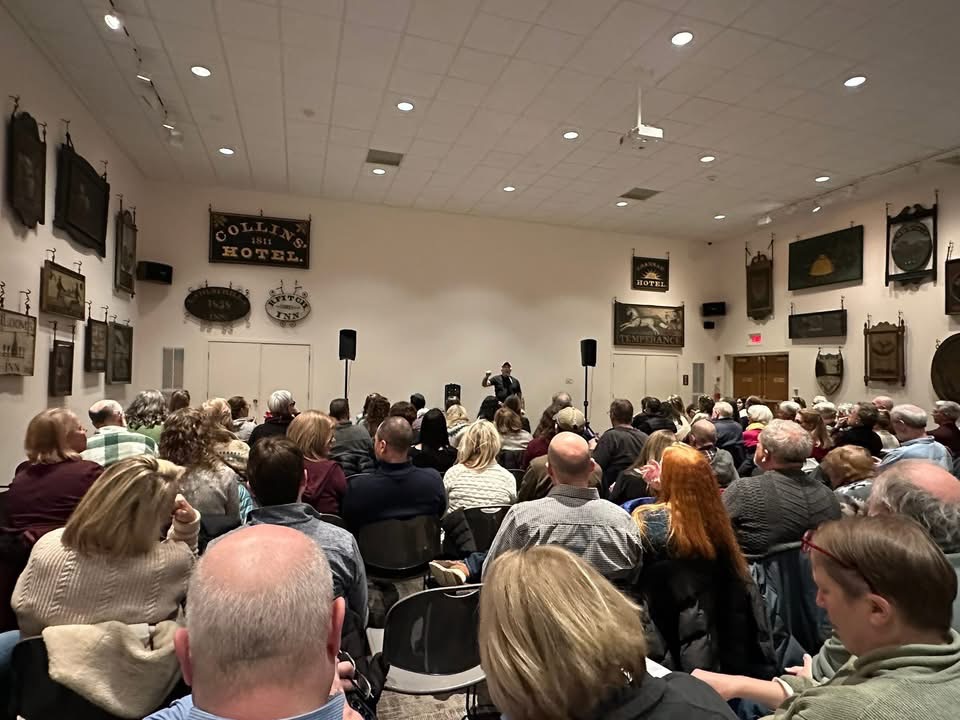A recent study on the placebo effect of sleep-tracking devices — often called “orthodontia “— has shown that sleep trackers can influence people’s perception of sleep quality, even when the data isn’t accurate.
Participants were given false feedback about their sleep quality after undergoing a sleep-tracking session.
Those who were told they had slept well (even when they hadn’t) performed better on cognitive tests, while those who were told they had slept poorly performed worse.
Thus, believing you had a good sleep could impact mental performance positively.
For years, I’ve been inviting friends and colleagues to join me in New York City, Boston, and other locations for Moth StorySLAMs, comedy shows, concerts, sporting events, and the like. Often, these shows and games happen on weeknights, meaning we leave shortly after the work day ends and return home after midnight.
Sometimes well after midnight.
Many of my friends make these trips with me, and some of my fondest memories come from these trips into the city on a Tuesday or Thursday night. But many of my friends and colleagues have declined my offer, telling me they can’t be out late on a work night and claiming they can’t even think about going to work the next day on four or five hours of sleep.
My argument has always been this:
You’ll never remember the day you spent at work, a little groggy and a little sleepy, but you’ll likely remember the fun we had in New York or Boston or Providence or New Haven for a long, long time. Don’t let your need for a comfortable day at work ruin your chance to make a lasting memory with friends.
Don’t let a few hours of sleep keep you from fun.
That argument occasionally works, but it often falls on deaf ears.
But here is what I’ve always thought but almost never say:
Don’t focus on the loss of sleep. Let that go. Pretend that you slept enough the night before. Decide that four hours of sleep is fine every now and then, and move on.
I certainly can’t do three or four late nights in a row without feeling its effects on my mind and body, but a night on the town at the expense of a few hours of sleep?
Maybe even two?
You can do that if you simply apply the right mindset.
Think positively. Instead of four hours of sleep, you slept 240 minutes. That’s a lot of minutes! It’s half a workday!
It’s probably something you did all the time when you were younger. Are you really so old now that you can’t pull off a late night on the town?
No, you are not. You just think so. Tragically so.
People don’t grow old. They start to think they are old, and this self-fulfilling prophecy takes care of the rest.
Don’t allow that to happen to you.
Or even better, walk into your workplace the next day knowing you slept three, four, or even five hours less than your colleagues, but while they were sitting at home, watching television, climbing into bed around nine or ten o’clock, you were seated in a theater in a vibrant city amongst other adventurers, laughing at comedy, watching storytellers ply their craft, witnessing athletic greatness, or listening to a musician perform.
Maybe you even took the stage yourself.
You also spent five or six hours in a car with friends, talking about life, cracking jokes, telling stories, learning new things, and cementing bonds that could last a lifetime.
When was the last time you spent five or six hours with friends, just talking, telling stories, and enjoying one another’s company?
But I almost never make this argument because I’m almost certain it will fall on deaf ears. Responses to this argument include:
You may not need eight hours of sleep, but I do.
Your biological requirements are different than mine.
Sleep is too precious not to get enough every night.
This last argument — sleep is too precious — is nonsense.
I treat sleep more preciously than almost anyone I know, and the sleep researchers at Yale University agree. I wrote an entire chapter in my book “Someday Is Today” on the importance of sleep, and when I interviewed the foremost expert on sleep at Yale to discuss the chapter, he agreed that my sleep hygiene is perfect.
I know what it takes to sleep well.
These “sleep is too precious” people are often the same people who:
- Watch television or read in bed
- Stare at phone and computer screens an hour or less before bed
- Eat a meal or snack three hours before bed
- Sleep in on the weekends
- Use snooze alarms
All things proven to seriously damage the quality of your sleep.
These are the same people who toss and turn throughout the night, spend half an hour falling asleep, and lounge in their bed after waking for 15 or 30 minutes.
Yet they can’t surrender a few hours of sleep to spend time with friends.
Enjoy a show.
Witness something that will never happen exactly the same way again.
Make a memory.
I rarely make this argument because I don’t choose arguments that go nowhere, but given this new research on the power of the placebo effect on sleep, I may reconsider.
If believing that you have slept well produces the effects of sleeping well, even if you haven’t slept well at all, can’t a mindset shift produce the same results?
Believing that you can occasionally sleep a little less and enjoy life a little more might be all it takes to forgo the incessant need to sleep eight hours on a workday and get your ass out of the house and into the world again.
Not always.
Not often.
Not even occasionally.
Just from time to time.
Believing that you’ll be just fine sleeping a little less might be all it takes to join the adventurers — those who are not confined in their amusement by work the next day.







